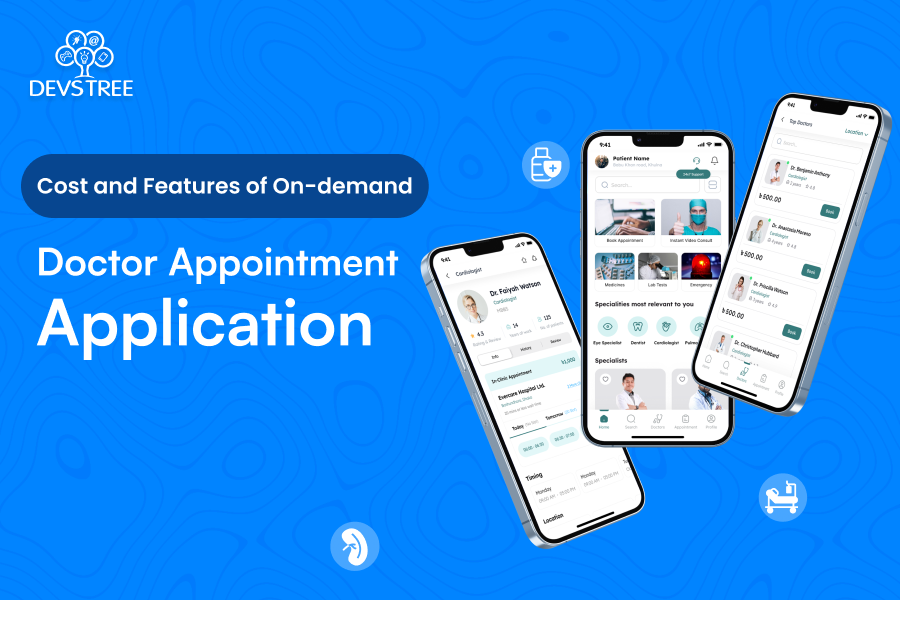
In today’s fast-paced world, accessing healthcare services conveniently has become a priority for many. Doctor appointment apps have emerged as a solution, offering seamless connectivity between patients and healthcare providers. This blog post aims to delve deeper into the cost considerations and essential features of developing such apps, simplifying complex technical aspects for a broader audience.
Understanding the Cost of Doctor Appointment Apps
When embarking on the journey of developing a doctor appointment app, it’s crucial to understand the various cost factors involved:
App Development Company
The choice of the development company significantly impacts the project’s cost. Opting for a reputable company with experienced developers may incur higher expenses but ensures quality and reliability.
Feature Complexity
The range and complexity of features incorporated into the app directly influence development costs. Basic features like appointment scheduling and doctor-patient communication form the foundation, while advanced features such as telemedicine integration and electronic health record (EHR) management add to the expenses.
Design and User Experience (UX)
Investing in intuitive design elements and a seamless user experience enhances app usability but may increase development costs. A well-designed interface improves user engagement and satisfaction, contributing to the app’s success.
Platform Selection
Deciding whether to develop the app for iOS, Android, or both platforms affects development costs. Cross-platform development using frameworks like React Native or Flutter may offer cost savings compared to native app development.
Regulatory Compliance
Healthcare apps must comply with various regulations, such as HIPAA in the United States or GDPR in Europe. Ensuring regulatory compliance adds complexity to development efforts and may incur additional costs.
Key Features of Doctor Appointment Apps
Doctor appointment apps come equipped with essential features designed to streamline the healthcare experience for both patients and providers:
User Registration and Profile Management
Users can create accounts and manage personal information securely within the app, facilitating seamless interactions.
Appointment Scheduling
Patients can easily book appointments with preferred doctors based on availability, specialty, and location, eliminating the need for phone calls or physical visits.
Telemedicine Integration
Real-time video consultations enable remote diagnosis and treatment, offering convenience and accessibility to patients from anywhere.
Electronic Health Records (EHR) Management
Integration with EHR systems allows doctors to access patients’ medical history, prescriptions, and diagnostic reports, enhancing the quality of care.
Secure Communication
In-app messaging ensures secure communication between patients and healthcare providers for follow-ups, prescription requests, and general inquiries, fostering patient engagement.
Payment Gateway Integration
Seamless payment processing for appointment bookings and telemedicine consultations enhances user experience while ensuring secure transactions.
Appointment Reminders
Automated reminders for upcoming appointments help reduce no-shows and improve appointment adherence rates, benefiting both patients and providers.
Conclusion
Doctor appointment apps represent a significant advancement in healthcare technology, offering unprecedented convenience and accessibility to patients worldwide. While the cost of development may vary depending on factors such as feature complexity and platform selection, investing in essential features ensures the app’s effectiveness and success. By partnering with a reliable app development company like Devstree UK, healthcare organizations can harness the power of technology to deliver superior patient care and drive positive health outcomes.
